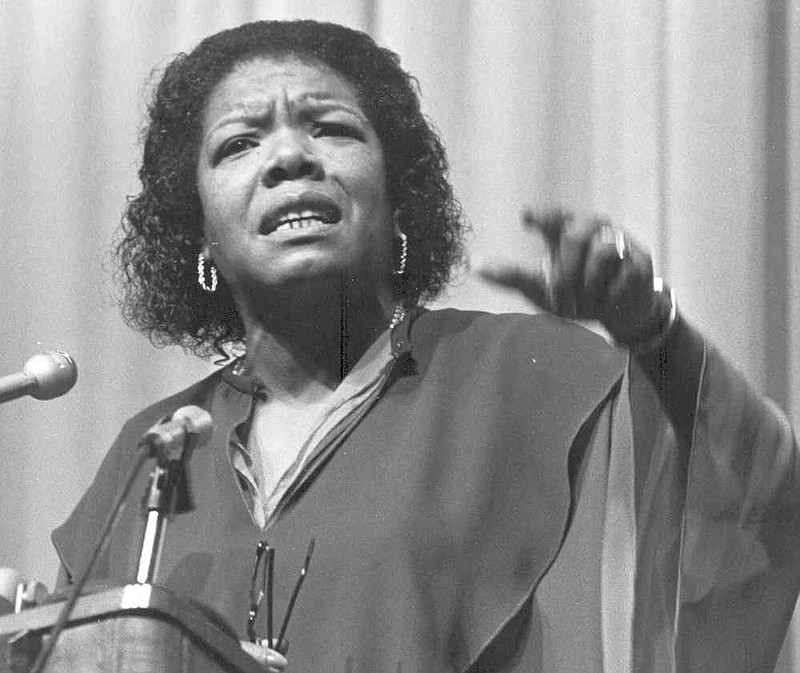Though he only met her once, David Collins said Maya Angelou was the type of person who made you feel like fast friends.
"When she came in (to the reception venue), she immediately began turning to where people were congregated and began greeting people before she even had her coat off," Collins, a Westminster College English professor from 1973 to 2013, said.
"She sat in a chair in a corner facing all of these people and of course, people were milling around near her and people began to approach her tentatively of course, because what do you say to Maya Angelou? I think that was on everybody's mind, but she just warmed people up by laughing, by reaching out and touching their hand, something to that affect. She proved she was immanently approachable."
The St. Louis-born poet, author and performer died May 28, leaving a legacy of work and public speeches that spanned decades. One appearance took place in the winter of 1983 at Westminster College, as part of the school's author lecture series.
Collins said Angelou's stay was meant only to include her speech and a brief reception at Bill and Mary Ellen Bleifuss' Jefferson Street home, but she spent the night in a spare room there due to a snow storm.
Collins said he didn't remember many specifics about Angelou's actual speech, but he did know it was a major draw.
"Normally we used Coulter Science Center's auditorium when we did these things, that seats 225 or 250," he said. "That particular night, it was probably no more than 20 minutes to her lecture and we realized there was no way we were going to fit all the people coming, so we moved across the street to Champ. We probably had a crowd of 400-500 - we've had some writers in recent years who've drawn very well ... but I think she was the writer with the biggest crowd I can ever remember who wasn't part of some other pre-planned event."
Active in the Civil Rights movement, Angelou worked both with Martin Luther King Jr. and Malcolm X before writing her first acclaimed autobiography, "I Know Why the Caged Bird Sings." After her visit to Westminster, Angelou went on to speak at Bill Clinton's inauguration and appeared on Sesame Street.
"She told people stories about her life and reached out in particular to students on that evening there, asking them about their lives and about whether they'd had any parallel experiences, even though these students she was talking to were mostly white at that stage of the game," Collins said. "She didn't sit and pontificate, she wanted to talk with people rather than talk to people. And after people got that impression, the atmosphere changed from "What do we do now' to "Wow, let's sit down here and have a chat here for a while.'"
Angelou's visit made an impact on students, as well.
"I remember Maya Angelou's reading very well," Cathy Myers of the Class of 1984 said in a statement released by the college. "I remember how incredibly eloquent she was and gracious. Even when she was being critical you couldn't help but feel good. At one point in her reading, she observed that WC had no persons of color on the faculty.
"My initial reaction was, "No, she must be mistaken.' I realized as I went through the faculty list in my head that she was right. The way that she brought it up was so gentle, so well meaning. She was like an elder who doesn't order change, but instead to make observations so that the recipient of that observation initiates change on their own volition."
Myers and Collins both commented that Angelou took students calling her an inspiration in great stride. Collins added she drank scotch the night of the reception, and when her hostess first offered her a place to stay for the night, Angelou said she didn't want to impose. The next morning, Angelou insisted in helping the dishes.
"Memories are relatively thin, although I'll never forget the evening," Collins said. "I've heard since then from five or six students who still remember being there and find it amazing now 31 years further on, that they have that to look back at - to remember bringing in those kinds of writers whose significance they didn't really quite understand at the time, but have since come to realize they had a rare experience."

